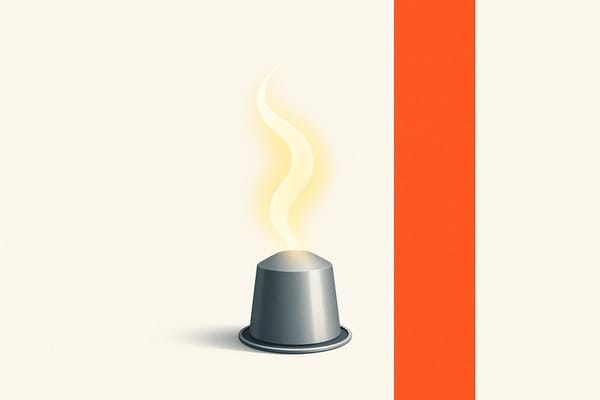How Caffeine Timing Affects Sleep and Wake Cycles
Learn how caffeine timing impacts sleep quality and wake cycles, and discover tips for optimizing your intake for better health.

Caffeine can disrupt your sleep if consumed too close to bedtime. But innovative strategies like delayed-release caffeine can harness its benefits to help realign your sleep schedule. Here’s what you need to know:
- Caffeine blocks adenosine, a hormone that makes you sleepy, reducing sleep quality and increasing nighttime awakenings.
- It delays REM sleep and shifts your internal clock, affecting your natural sleep-wake cycle.
- Poorly timed caffeine can cut sleep by 45 minutes and reduce sleep efficiency by 7%.
Key Tips:
- Stop caffeine 8-12 hours before bed depending on its strength.
- Delayed-release caffeine options help you wake up energized without disturbing sleep.
- Avoid caffeine after 4 PM to protect your rest.
By planning your caffeine intake and choosing the right products, you can enjoy its benefits without sacrificing sleep.
Caffeine's Effects on Sleep and Wake Cycles
Caffeine and Adenosine
Caffeine interferes with sleep by blocking adenosine, a hormone that builds up throughout the day to make you feel sleepy. By doing this, it boosts the activity of stimulating neurotransmitters like dopamine and norepinephrine. Studies show caffeine can lower sleep quality, cutting down total sleep time and reducing how efficiently you sleep. It can delay falling asleep, reduce deep sleep, and increase both light sleep and nighttime awakenings.
Caffeine's Effect on Circadian Rhythms
Caffeine doesn't just affect how alert you feel - it also influences your circadian rhythms, the internal clock that governs your sleep-wake cycle. Research has shown that regular caffeine use can shift natural sleep patterns.
For example, a study on mice found that long-term caffeine consumption could significantly alter sleep timing:
"Abolish the 'siesta' during the awake phase and shift the onset of sleep by up to 2 hours relative to the light-dark cycle".
This has important takeaways for human sleep, particularly regarding when caffeine is consumed. Interestingly, caffeine's effects may even extend into sleep itself:
"Caffeine's neuroprotective effects, particularly against neurodegenerative diseases like Parkinson's, could be linked to its enhanced blood flow during sleep, aiding in the clearance of metabolic waste".
To avoid disrupting sleep, timing is key.
Phase Advance of Circadian Rhythm
By timing caffeine intake to occur before you wake up, especially with delayed-release caffeine, you can influence your natural cortisol response. Cortisol, a wake-promoting hormone, peaks in the morning to help you feel alert. Caffeine released during the early morning hours:
• Causes an earlier cortisol spike, shifting your circadian rhythm forward.
• Helps you wake up more naturally and aligns your sleep schedule with earlier wake times.
This “phase advance” effect is particularly beneficial for people looking to reset their sleep schedules, such as those transitioning to earlier wake times or recovering from jet lag.
Why Caffeine Timing Matters
The timing of caffeine intake plays a key role in balancing energy levels and maintaining healthy sleep patterns. Poorly timed caffeine can cut total sleep by 45 minutes and reduce sleep efficiency by 7%. To avoid interfering with sleep, caffeine consumption should be planned well in advance of bedtime - about 8.8 hours for a regular cup of coffee (107 mg) and up to 13.2 hours for stronger options like pre-workout supplements (217.5 mg). Drinking caffeine in the evening can lead to noticeable changes in sleep: 6.1 more minutes of light sleep, 11.4 fewer minutes of deep sleep, a 9-minute delay in falling asleep, and 12 extra minutes of nighttime wakefulness.
Avoiding Caffeine at Night
Studies consistently show that consuming caffeine in the evening disrupts sleep patterns. These disruptions are measurable and well-documented, reinforcing the importance of timing caffeine intake to maintain good sleep quality. By sticking to recommended timing windows, it's possible to enjoy caffeine's benefits during the day without sacrificing rest at night.
Delayed-Release Caffeine Products
Delayed-release caffeine products offer a smart solution for managing caffeine timing. For example, Zest Labs' wake-up pill releases caffeine 7-8 hours after being taken, syncing with the body's natural wake cycle. This helps you shift your circadian rhythm forward.
By timing caffeine’s release overnight, delayed release caffeine products:
• Boost morning energy levels.
• Promote a phase advance in your circadian rhythm.
• Allow you to fall asleep more easily while still waking up energized.
Why It Works:
• Overnight Caffeine + Cortisol: Caffeine complements cortisol’s natural peak in the early morning, reinforcing your body’s natural wake signals.
• Phase Advance: Shifting the circadian clock forward helps adjust to earlier sleep and wake times.
Tips for Using Caffeine to Improve Sleep and Wake Cycles
Choosing the Right Caffeine Product
Picking the right caffeine product can make a big difference in managing your sleep and wake cycles. Delayed-release caffeine options, for example, help align caffeine's effects with your natural rhythms, supporting better sleep and alertness.
Products like Zest Labs' wake-up pill combine caffeine with nutrients like Vitamin B5, B12, and Zinc. These pills are designed to release their active ingredients 7-8 hours after you take them, syncing with your natural wake-up time. When evaluating products, focus on factors like release timing, ingredient quality, and certifications such as vegan or non-GMO.
| Factor | Why It Matters | What to Look For |
|---|---|---|
| Release Timing | Supports better sleep | 7-8 hour delayed release for bedtime use |
| Formulation | Impacts absorption | Natural, clinically validated ingredients |
| Quality Standards | Ensures safety and reliability | Certifications like vegan or non-GMO |
| Dosage | Affects individual response | Standardized, consistent amounts |
After choosing a product that fits your needs, the next step is to plan your caffeine intake effectively.
Planning Your Caffeine Intake
When and how you consume caffeine plays a huge role in maintaining good sleep patterns. Here’s how to do it right:
For morning caffeine:
- Use delayed-release products at bedtime to ensure they kick in 7-8 hours later, helping you wake up alert.
For regular caffeine sources:
- Avoid consuming them 8-12 hours before bedtime, depending on the strength of the product.
Consistency is key. Sticking to a regular caffeine schedule helps keep your circadian rhythm on track. Irregular use can lead to poor-quality sleep by increasing light sleep and cutting down on deep sleep. With careful planning and the right products, you can enjoy the benefits of caffeine without sacrificing your rest.
Balancing Caffeine for Health and Productivity
Using Caffeine for Productivity
Timing your caffeine intake can help improve focus and energy levels. To get the most out of it, align your consumption with your body's natural rhythms. For instance, having caffeine in the morning can boost alertness without interfering with your sleep later.
Here’s a quick guide to timing your caffeine:
| Time of Day | Approach | Benefits |
|---|---|---|
| Morning (6-10 AM) | Use regular or delayed-release caffeine | Increases alertness during peak hours |
| Early Afternoon (12-2 PM) | Limit intake | Helps maintain focus without affecting sleep |
| Evening (After 4 PM) | Avoid caffeine | Protects your sleep quality |
Studies show that while caffeine can delay the time it takes to fall asleep, the body may adjust during later sleep stages. However, using caffeine carelessly can negatively impact both your health and sleep.
Risks of Excessive Caffeine
According to the European Food Safety Authority (EFSA), healthy adults should limit their daily caffeine intake to 400 mg. Overdoing it can delay sleep by up to two hours, disrupt REM sleep, and reduce the quality of recovery sleep.
To avoid building a tolerance, focus on timing your caffeine intake instead of increasing the amount. If you use delayed-release caffeine, stick to morning doses to stay in sync with your natural sleep-wake cycle. If you notice issues like anxiety or poor sleep, it’s a good idea to cut back or adjust when you consume caffeine.
Managing your caffeine intake wisely helps you stay productive during the day while ensuring you get the restorative sleep you need for overall health.
Optimizing Caffeine Timing for Sleep and Productivity
The timing of caffeine consumption plays a key role in both sleep quality and daily performance. Consuming caffeine too late in the day can disrupt sleep patterns, with research showing that an average daily intake of 478.1 mg can interfere with REM sleep regulation.
"Chronic caffeine use significantly alters brain blood flow, increasing it during sleep and reducing it when awake."
FAQs
How long before sleep should I take caffeine?
To avoid messing with your sleep, aim to stop consuming caffeine at least 6-8 hours before bedtime. If you're using stronger sources like pre-workout supplements, you might need to cut it out as early as 13 hours before sleep. For reference, a regular cup of coffee (about 107 mg of caffeine) should be consumed no later than 8.8 hours before hitting the pillow.
Looking for a different option? Some delayed-release caffeine products, like Zest Labs' wake-up pill, are designed to release caffeine 7-8 hours later. This can help you wake up feeling refreshed without disturbing your sleep.
Keep in mind that factors like your metabolism and overall health play a big role in how your body handles caffeine. Adjust your timing based on your sensitivity to ensure you get a good night's rest.





